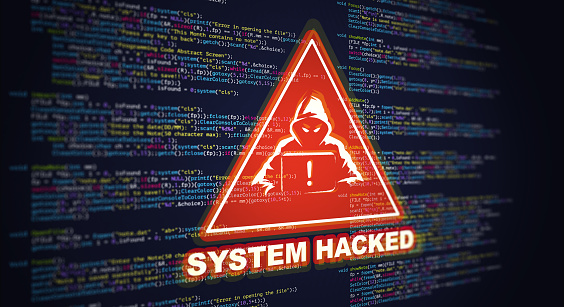As we continue to ride the wave of digital transformation, cybersecurity has taken center stage across every industry. This is especially true for offshore engineering—a sector that is heavily reliant on technology for operational efficiency, safety, and compliance. With an increasing array of cyber threats, this industry faces unique challenges to ensure the security of their operations and infrastructure.
In this deep dive, we will explore the multifaceted cybersecurity landscape within offshore engineering, evaluate the variety of cyber threats these industries face, discuss the measures being taken to counteract these risks, and glimpse into the future of cybersecurity in this vital sector.

Understanding the Cybersecurity Landscape in Offshore Engineering
Digital technologies are undeniably transforming the offshore engineering sector. They increase efficiency, enable remote monitoring and control, and have the potential to revolutionize operations. Yet, these benefits come at a cost—an increased vulnerability to cyber threats.
Potential Cybersecurity Threats
Offshore engineering is susceptible to a broad range of cybersecurity threats, from ransomware attacks to Denial of Service (DoS) assaults, and phishing schemes. These can lead not only to significant financial losses and operational disruptions but also jeopardize the safety of personnel and the environment.
For example, ransomware is a type of malicious software designed to block access to a computer system until a sum of money is paid. In the context of offshore engineering, an attacker might use ransomware to lock a company out of its own drilling control systems, demanding a ransom to restore access. The consequences? Potentially, a total halt of operations.
Similarly, a DoS attack, wherein a server is overloaded with traffic until it shuts down, could cause significant disruptions to operations. In the worst-case scenario, a successful DoS attack on offshore infrastructure could impact safety systems and lead to catastrophic events.
Moreover, phishing attacks, where an attacker tricks an employee into revealing sensitive information, pose a significant threat. Imagine an attacker sending a seemingly innocuous email to an offshore rig’s controller, who unwittingly reveals login credentials. The attacker could then manipulate the control systems, leading to serious repercussions.

Case Study: The NotPetya Attack
To illustrate the severity of cyber threats in this sector, let’s revisit the NotPetya attack in 2017. This devastating ransomware attack spread globally, affecting numerous companies. The world’s largest shipping conglomerate, Maersk, was one of the hardest hit.
The attack brought down Maersk’s IT systems, crippling their operations. Ships were stranded at sea, automated cranes became inoperable, and the company couldn’t even communicate with their customers. The aftermath of the attack cost Maersk an estimated $300 million and served as a wake-up call to the maritime and offshore industry.
Enhancing Cybersecurity in Offshore Engineering
The potential threats to offshore engineering are grave and necessitate advanced strategies and measures to mitigate risk. Implementing robust cybersecurity protocols in offshore engineering is no longer an option—it’s a requirement.
Implementation of Cybersecurity Frameworks and Standards
To bolster security, various cybersecurity frameworks and standards, such as the NIST Cybersecurity Framework, offer guidelines for enhancing cybersecurity within offshore operations. These frameworks encompass key areas such as identifying vulnerabilities, protecting critical infrastructure, detecting, responding to, and recovering from cybersecurity incidents.
The implementation of these standards requires a thorough understanding of both the IT (Information Technology) and OT (Operational Technology) aspects of offshore operations. While IT is often associated with data-centric systems like databases and servers, OT refers to the hardware and software used to change the physical state of a system, such as the industrial control systems (ICS) used in offshore engineering. Protecting both IT and OT is crucial in the face of growing cyber threats.
Role of Machine Learning in Cybersecurity
Machine Learning (ML) is playing an increasingly important role in enhancing cybersecurity. ML algorithms, by their nature, can sift through vast volumes of data, identify patterns, and detect anomalies. These algorithms can identify suspicious network activity or detect malware by analyzing data patterns, providing an additional layer of security. This early detection enables companies to respond to potential threats proactively, significantly reducing the potential fallout.
For instance, unsupervised learning algorithms can monitor network traffic in real-time, identify any anomalies, and alert cybersecurity personnel. They can also be trained to detect phishing attempts by analyzing the patterns and features of previously identified phishing emails.
Future of Cybersecurity in Offshore Engineering
Looking ahead, cybersecurity in offshore engineering is set to become more complex. However, emerging technologies and methodologies are being developed to counteract increasingly sophisticated cyber threats.
Predictive Analytics in Cybersecurity
Predictive analytics, powered by machine learning, is a promising development in cybersecurity. By examining historical data, these analytics tools can discern patterns that may indicate potential cyber threats in the future, enabling companies to take preventative measures. This approach can transform cybersecurity from being reactive to proactive.
Quantum Cryptography
On the horizon, Quantum cryptography presents an exciting development. This nascent technology employs principles of quantum mechanics to secure data transfers, providing an almost uncrackable method of encryption. Although still in its early stages, quantum cryptography holds the potential to revolutionize data security in the offshore engineering sector.
Conclusion
As digitalization continues to permeate the offshore engineering sector, the critical role of cybersecurity cannot be overstated. Comprehensive and forward-thinking cybersecurity measures are paramount to protect operations, safeguard personnel, and prevent environmental catastrophes. It is not just about safeguarding operations, but also about preserving our environment and ensuring the safety of personnel.

In this era of rampant cyber threats, offshore engineering companies must remain steadfast, innovative, and proactive. As we chart a course through the digital seascape of the future, cybersecurity serves as our compass, guiding us towards safer shores.








